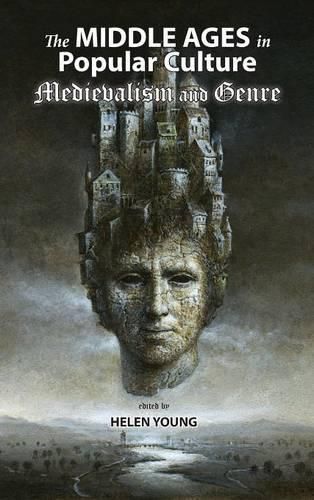Readings Newsletter
Become a Readings Member to make your shopping experience even easier.
Sign in or sign up for free!
You’re not far away from qualifying for FREE standard shipping within Australia
You’ve qualified for FREE standard shipping within Australia
The cart is loading…






This title is printed to order. This book may have been self-published. If so, we cannot guarantee the quality of the content. In the main most books will have gone through the editing process however some may not. We therefore suggest that you be aware of this before ordering this book. If in doubt check either the author or publisher’s details as we are unable to accept any returns unless they are faulty. Please contact us if you have any questions.
This fascinating study places multiple genres in dialogue and considers both medievalism and genre to be frameworks from which meaning can be produced. It explores works from a wide range of genres-children’s and young adult, historical, cyberpunk, fantasy, science fiction, romance, and crime-and across multiple media-fiction, film, television, video games, and music. The range of media types and genres enable comparison, and the identification of overarching trends, while also allowing comparison of contrasting phenomena. As the first volume to explore the nexus of medievalism and genre across such a wide range of texts, this collection illustrates the fractured ideologies of contemporary popular culture. The Middle Ages are more usually, and often more prominently, aligned with conservative ideologies, for example around gender roles, but the Middle Ages can also be the site of resistance and progressive politics. Exploring the interplay of past and present, and the ways writers and readers work engage with them demonstrates the conscious processes of identity construction at work throughout Western popular culture. The collection also demonstrates that while scholars may have by-and-large abandoned the concept of accuracy when considering contemporary medievalisms, the Middle Ages are widely associated with authenticity, and the authenticity of identity, in the popular imagination; the idea of the real Middle Ages matters, even when historical realities do not. This book will be of interest to scholars of medievalism, popular culture, and genre. See http: //www.cambriapress.com/books/9781604978971.cfm for more
$9.00 standard shipping within Australia
FREE standard shipping within Australia for orders over $100.00
Express & International shipping calculated at checkout
This title is printed to order. This book may have been self-published. If so, we cannot guarantee the quality of the content. In the main most books will have gone through the editing process however some may not. We therefore suggest that you be aware of this before ordering this book. If in doubt check either the author or publisher’s details as we are unable to accept any returns unless they are faulty. Please contact us if you have any questions.
This fascinating study places multiple genres in dialogue and considers both medievalism and genre to be frameworks from which meaning can be produced. It explores works from a wide range of genres-children’s and young adult, historical, cyberpunk, fantasy, science fiction, romance, and crime-and across multiple media-fiction, film, television, video games, and music. The range of media types and genres enable comparison, and the identification of overarching trends, while also allowing comparison of contrasting phenomena. As the first volume to explore the nexus of medievalism and genre across such a wide range of texts, this collection illustrates the fractured ideologies of contemporary popular culture. The Middle Ages are more usually, and often more prominently, aligned with conservative ideologies, for example around gender roles, but the Middle Ages can also be the site of resistance and progressive politics. Exploring the interplay of past and present, and the ways writers and readers work engage with them demonstrates the conscious processes of identity construction at work throughout Western popular culture. The collection also demonstrates that while scholars may have by-and-large abandoned the concept of accuracy when considering contemporary medievalisms, the Middle Ages are widely associated with authenticity, and the authenticity of identity, in the popular imagination; the idea of the real Middle Ages matters, even when historical realities do not. This book will be of interest to scholars of medievalism, popular culture, and genre. See http: //www.cambriapress.com/books/9781604978971.cfm for more